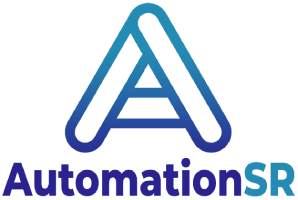
 In order to make a good choice for your next job, there’s one thing you must do: Be authentic. But that doesn’t mean you should open up so much that your brains fall out! Authentic candidates are clear, open and certain about what s/he brings to the table. They know specifically how they could add value to the firm and why they would fit into the culture there. Don’t assume that you’re being authentic (or truthful) requires you to tell your interviewer every detail about yourself. It’s necessary to employ good judgment and to be discreet when you share personal and professional matters. Employers appreciate candidates who show discretion, as after all, whomever they hire would also need to be discreet on the job with how much they share about personal matters.
In order to make a good choice for your next job, there’s one thing you must do: Be authentic. But that doesn’t mean you should open up so much that your brains fall out! Authentic candidates are clear, open and certain about what s/he brings to the table. They know specifically how they could add value to the firm and why they would fit into the culture there. Don’t assume that you’re being authentic (or truthful) requires you to tell your interviewer every detail about yourself. It’s necessary to employ good judgment and to be discreet when you share personal and professional matters. Employers appreciate candidates who show discretion, as after all, whomever they hire would also need to be discreet on the job with how much they share about personal matters.
Two major do’s for authenticity
1. Be authentic about what you’re really looking for in your search.
Being authentic relates to everything about your search for the right company, the right position and for what you sincerely bring to the table. Search for a company that appeals to you in as many ways as possible. Research as much as you can about your perspective employer and how they treat their employees. Glassdoor puts out an annual survey that has employees rank their employers (The Best Companies to Work For 2014 ).
Ask yourself, do I identify with this company’s mission and its product/service offerings? Try to connect with someone in the firm who knows about the company’s culture and the specific job you’re seeking to gain perspective on whether you would be the right fit for a position there. The questions you ask should help you discern whether you would be suitable for the job and excited about working there. Be intellectually honest with yourself. Is this a job that fits your personality and skill sets? If yes, pursue it with gusto. If not, don’t waste your time or the hiring manager’s time and move on to another opportunity. For instance, if your skills are really in computer sciences but the job offering requires fifty percent of the work to be in financial analysis… don’t try to falsify or exaggerate what you can do for them. In the end, you’ll be happier in a job that utilizes your dominant skill set.
2. Be authentic about what you can bring to the table.
Know what your value is and be able to articulate a compelling, authentic message about what you can do for your prospective employer. Be specific and tailor your narrative to their needs. Emphasize the skills, interest, abilities and accomplishments that will matter most to your hiring manager and above all make sure you’re truthful. You don’t want to get a job that isn’t really a good fit! You want a job that will be appropriate for your abilities and one that will challenge but not overwhelm you. If you know what they’re looking for and you really think you can meet the requirements for the position, go for it! If you’re not sure, don’t try to convince yourself or them that you are right for the spot.
When you’re true to yourself and truthful to your employer you’ll start your job off on the right foot, sleep better at night and have a much better chance of excelling at your work!
Two main don’ts for authenticity
1. Don’t ever exaggerate your skills, abilities, contacts or experiences. It will raise expectations that will cause a person inevitable stress.
2. Don’t highlight your idiosyncrasies that could get someone to raise their eyebrow and wonder about you and you also don’t need to open up about flaw you’ve made unless the interviewer asks specifically about an error in your past.
A savvy interviewer knows his strengths and knows exactly why s/he could add value to a particular organization. They are sensitive to the needs of the hiring manager and are clear, precise and truthful in explaining their value. The prospective employer appreciates authenticity in an interviewee as it allows for making a better fit in the hiring process. In the end it’s a win-win for the firm and for the new hire as everyone’s expectations are realistic and achievable.



